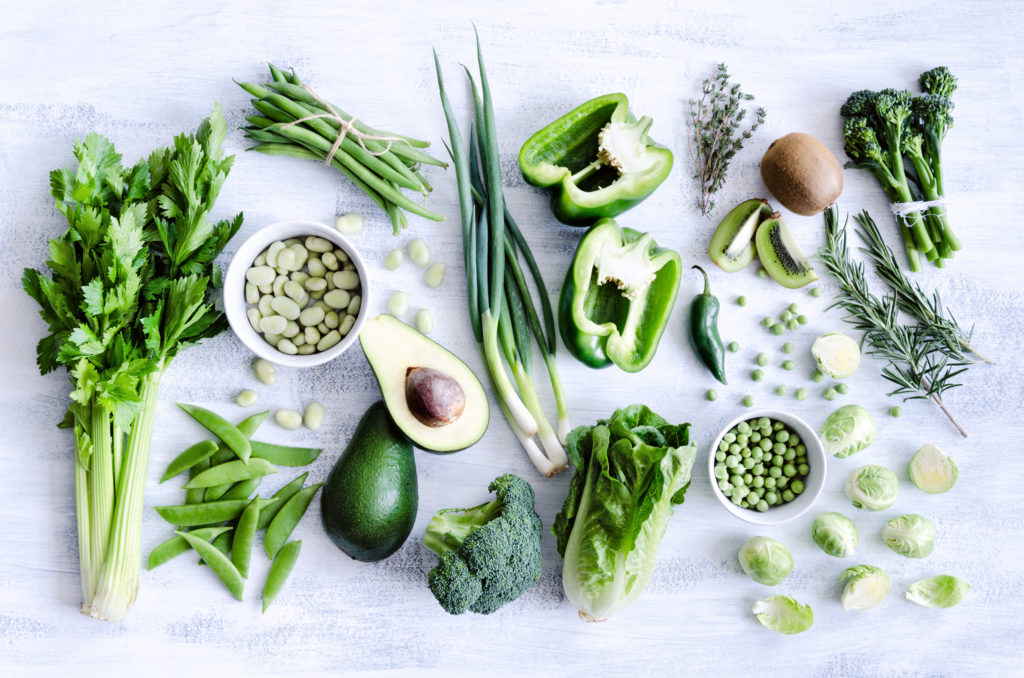Heartburn is an unpleasant sensation that occurs when stomach acid finds its way into your throat and mouth. This causes a burning feeling in your chest that can make you quite worried if you haven’t experienced it before.
Even though the pain due to heartburn is extremely uncomfortable, it is usually not a cause for concern because that feeling disappears with time. However, heartburn can have the same symptoms as some other, more serious health problems, so it is good to know the difference between heartburn and some more serious conditions that require a doctor’s intervention.
What Is Heartburn?
The term heartburn describes the reaction that happens when the muscles around the bottom of your oesophagus, which normally tighten once they’ve let food into your stomach, become weaker or too relaxed. Therefore, stomach acid can travel back up into your oesophagus and all the way up to your mouth.
This causes an unpleasant burning sensation, and might feel even worse if you lie down or bend over after a meal. The condition can be treated in various ways, both naturally and with medication, but it can be quite worrying if you also start experiencing other signs of heartburn.
Where Do You Feel Heartburn?
Heartburn usually starts as a burning sensation in your upper abdomen that travels to the chest. It can also be accompanied by either pressure or pain behind your breastbone, which certain people suffering from more severe symptoms even confuse with a heart attack. Moreover, the pain of heartburn can also radiate to your neck and shoulders.
Some other frequently experienced symptoms include:
- a feeling of not being able to swallow food completely: you might get the feeling of food getting stuck in your chest or throat, or even like your throat is closing and you’re choking;
- frequent burping: feeling the need to burp a few times after a meal is completely normal and acceptable (especially if done in private), but excessive burping may be a sign of heartburn;
- bloating: if your belly seems bloated, especially after a regular well-balanced meal, the reason might be heartburn;
- discomfort after a meal: if your discomfort grows after eating or you feel abnormally full for no particular reason, acid reflux could be the cause.
In case you experience such symptoms, see your doctor as soon as possible to double-check you’re actually experiencing heartburn and not some more serious condition.

More uncommon signs of heartburn include coughing, lasting hiccups, cold sweats, shortness of breath or dizziness.
When Does Heartburn Pain Appear?
As mentioned before, signs of heartburn usually appear after a meal, especially when you bend over or lie down. Eating a heavy, fatty, salty or spicy meal might increase the likelihood of heartburn and make the situation even worse.
However, many people experience heartburn during the night, and that form is known to be the most painful. Night-time heartburn happens especially if you’ve eaten within two hours before going to bed.
Heartburn can also occur during pregnancy, as hormonal imbalances cause your muscles to relax. This has many advantages for the foetus, but the process can also weaken the lower oesophageal valve. Moreover, a growing baby doesn’t help as it puts extra pressure on your stomach, which is why stomach acids are more likely to spill out of it. Luckily, like diabetes during pregnancy, heartburn can completely disappear after delivery.
When to Seek Medical Help When Suffering from Heartburn
If you’re experiencing severe signs of heartburn then it’s important to seek get medical help and manage your symptoms. If left untreated, regular exposure to stomach acid can cause chronic teeth problems, general pain, throat ulcers or tissue irregularities. This can then lead to an inability to swallow, speak and even breathe.
Additionally, frequent exposure to acid can damage your oesophageal tissue and increase your risk of developing cancer.
Seek help if you’re not completely sure if you’re actually experiencing heartburn, as there are some other conditions with overlapping symptoms that can make the whole situation quite confusing.
Heartburn vs. Indigestion
Heartburn and indigestion come with a lot of similar symptoms, but do not actually mean the same thing. As you now know, heartburn is the result of acid escaping from the stomach, whereas indigestion is the result of foods irritating the stomach and its lining.

The official medical term for indigestion is dyspepsia, and it basically describes pain in the upper part of your stomach which typically occurs during or after a meal. It’s usually the result of eating too much, too fast, or meals that are high in fat. Another reason for indigestion is eating with your mouth open, which leads to swallowing too much air. However, in general indigestion doesn’t come with acid reflux, and its symptoms usually fade away on their own, so this condition shouldn’t be too worrying.
Heartburn vs. Heart Attack
Sometimes, heartburn can come with very alarming signs that might make you think you’re experiencing a heart attack. However, there are a few indicators that’ll help you distinguish between the two and teach you what heartburn really feels like:
- time: heartburn usually appears after a meal, whereas a heart attack is generally not related to the food you eat;
- taste: that sour acid taste in your mouth is caused by heartburn, and is not a symptom of a heart attack;
- location: heartburn usually starts in the top part of the stomach and travels to the centre of your chest, while a heart attack is felt in the left part of your chest (next to the heart) and can radiate to your back, neck, jaw, shoulders or down your arms;
- type of pain: heartburn pain is often described as a series of sharp chest pains, whereas a heart attack commonly feels like a kind of heaviness coming over your body;
- treatment: heartburn is normally relieved by antacids, which do not help with the symptoms of a heart attack.
Heartburn vs. Angina Pectoris
Angina is basically described as chest pain, which appears as the result of lack of blood flowing to your heart and can actually feel a lot like heartburn. However, you are more likely to experience pain from angina after physical activity or exposure to cold weather than after a meal, which is the case with heartburn.
Another difference can be seen in your body’s response to treatment. Signs of heartburn are usually alleviated when taking antacids, whereas angina is commonly treated with nitro-glycerine. If you’ve never felt any chest pain before, the best idea is to seek medical help as soon as possible when you do.
Other Possible Conditions
Since some signs of heartburn are so common, there are various other possible conditions you could actually be suffering from:
- oesophageal spasm: a muscle spasm in your oesophagus could trigger similar symptoms to heartburn, as it makes it difficult to swallow foods or drinks, gives the sensation of food being stuck in the centre of your chest, as well as a burning sensation in the throat and chest;
- gallstones: symptoms associated with gallstones often occur after a meal, particularly a fatty one, and may mimic those of heartburn as they include abdominal pain;
- ulcer: like heartburn, ulcers can cause a burning sensation that is usually felt within the upper part of your abdomen and may move up to the chest. Confusingly, antacids can also help with ulcer-related pain, so consulting your doctor if you’re unsure which condition you’re suffering from might be the best idea, as taking antibiotics will be needed to clear the infection caused by ulcers.
These are just a few common medical conditions that come with symptoms similar to those of heartburn. Again, if you’re not sure which one you’re experiencing, you should immediately seek medical attention.

How to Treat Heartburn
If you frequently experience signs of heartburn, there are several lifestyle changes you can make to get your life back on track.
Try focussing on the following natural remedies:
1.Optimal weight
Being overweight is one of the leading causes of heartburn. Overweight people are bound to experience heartburn more often since more pressure is put on their abdomen, and so stomach acid is more likely to backflow into the oesophagus. If you’re overweight, losing a couple of kilograms will help you reduce the symptoms of heartburn.
2. Good posture
Do not slouch while you eat, as sitting upright will take the pressure off your stomach. Additionally, elevate the head of your bed when you go to sleep to prevent stomach acid from coming up your throat during the night.
3. Choosing healthy foods
Some foods can actually help you alleviate the problems that come with heartburn. Try adding alkaline fruits, such as bananas or melons, as well as green vegetables to your diet. Moreover, eat soothing dairy products like yoghurt and don’t forget about whole grains that treat as well as prevent acid reflux.
Things to Avoid:
1.Certain foods and drinks
Cutting down on spicy foods that contain capsaicin is a good idea, since they slow down your digestion and irritate your oesophagus. Also avoid fatty foods, as they can cause your oesophageal sphincter to relax and enable the backflow of stomach acid, while at the same time slowing down your digestion.
The next food to avoid won’t not be easy for all chocolate lovers. Sadly, consuming cocoa can again work towards the relaxation of your oesophageal sphincter and cause the rise of stomach acid. The sphincter muscle can also open due to the consumption of alcohol and caffeine, so try avoiding them for a while in order to test if there’s any connection.

2. Smoking
The oesophageal sphincter doesn’t only relax due to the foods and drinks you consume, but can also be relaxed due to habits such as smoking or chewing tobacco. The nicotine in tobacco will weaken the valve between the oesophagus and stomach, and let acid escape and go up into your throat.
3. Tight clothing
Another culprit for increased pressure on your abdomen could be the clothing you wear. If you’re suffering from heartburn pain then avoid tight-fitting clothing, including belts, shapewear or other pieces that put extra pressure on your abdomen.
The above-mentioned list is not exhaustive, and there are numerous other heartburn remedies you could try. The best suggestion would be to use your common sense in order to find links between your lifestyle and heartburn, or seek immediate medical help if your symptoms become more severe.
And Stay Healthy!
As you can see, avoiding heartburn has a lot to do with taking good care of your overall health. If you’re struggling to get your health back on track and need more advice on where to start, you might want to read our article about boosting your immune system, or foods that will help you do this.
And if you want a strong immune system, definitely take care of your digestion. Make sure you beat constipation and detox your body. Good luck!
Would you like to get rid of heartburn?
Frequently Asked Questions
1. What is heartburn?
Heartburn occurs when a bit of gastric acid enters the esophagus. This usually happens due to weakened or overly relaxed muscles at the bottom of the esophagus and it is manifested as a burning sensation in the chest.
2. Where do we feel heartburn?
Heartburn is first felt in the upper part of the stomach and the burning pain then spreads to the chest and, in some cases, even to the neck and the shoulders.
3. What are the symptoms of heartburn?
Heartburn can be accompanied by difficulty swallowing, and very often there is bloating, gas, as well as discomfort while eating.
4. When does the heartburn pain occur?
If the heartburn-related burning sensation is caused by the food, the pain occurs quickly after eating, and very often when bending or lying down, especially at night. Heartburn often affects pregnant women because the altered hormonal balance also affects the work of digestive tract muscles.
5. How to differentiate heartburn from other health problems?
If heartburn lasts too long and frequently occurs, a doctor must be consulted because frequent leaking of gastric acid into the esophagus can damage it. And how to differentiate heartburn from a heart attack? Heartburn often occurs right after eating, and a heart attack is not connected to food consumption. Heartburn is also followed by the taste of acid in one’s mouth, and the pain comes from the stomach and not from the chest (around the heart) as it normally occurs with a heart attack. Angina pectoris, which is caused by a poor blood flow to the heart, can be very similar to heartburn. However, the pain in angina pectoris does not occur after eating, but after a strenuous physical activity.
Choose chapter:






